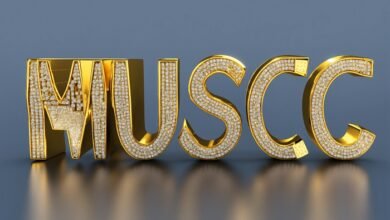Preparing for the Next Exam: A Comprehensive Guide for Every Batch

Introduction
Exams are a significant part of academic life, and preparing for them can be daunting, especially when it comes to knowing how to tailor your preparation based on your specific batch. Whether you’re a freshman experiencing your first college exams or a senior gearing up for finals, understanding the nuances of exam preparation for your batch can make a significant difference. In this guide, we’ll delve into the best strategies for each batch to ensure success in your next exam.
Your Batch and Its Unique Challenges
Every batch of students faces unique challenges when preparing for their next exam. Freshmen, for example, are often adjusting to the rigors of college-level exams, while seniors might be balancing job searches or graduate school applications with their studies.
For freshmen, the next exam can seem overwhelming due to the new environment and higher expectations. They need to focus on understanding the exam formats and mastering time management. Sophomores, on the other hand, might struggle with more advanced coursework and the pressure to declare a major, making it crucial to develop effective study habits early on.
Juniors often face the challenge of more complex and specialized courses, requiring a deeper understanding of the material. Finally, seniors need to manage their time efficiently, balancing exam preparation with other commitments. Each batch must recognize these challenges to prepare effectively for their next exam.
Setting Realistic Goals for Your Next Exam
Setting realistic goals is vital for exam success, regardless of your batch. Freshmen might aim to simply pass their courses and adapt to the new academic environment. Sophomores could set goals to improve their GPA or understand their major subjects better.
Juniors should focus on mastering their specialized subjects and preparing for any upcoming standardized tests or internships. Seniors might aim to achieve high grades to enhance their resumes or graduate school applications. Each batch should set specific, measurable, achievable, relevant, and time-bound (SMART) goals for their next exam.
These goals should be tailored to the unique challenges of their batch, ensuring they are both challenging and attainable. By setting clear goals, students can stay motivated and focused on their studies, improving their chances of success in their next exam.
Creating an Effective Study Schedule
An effective study schedule is crucial for preparing for the next exam. Freshmen often struggle with time management, making it essential to create a balanced schedule that includes time for classes, study, and relaxation. Sophomores might need to allocate more time to major-specific courses, ensuring they understand the material thoroughly.
Juniors should develop a study schedule that allows for deep dives into complex subjects while also preparing for any standardized tests. Seniors, balancing multiple commitments, must create a flexible yet structured schedule to ensure they are adequately prepared for their next exam.
Each batch should include regular breaks in their schedule to avoid burnout and ensure long-term retention of information. By creating a study schedule tailored to their unique needs, students can ensure they are well-prepared for their next exam.
Utilizing Resources and Support Systems
Utilizing available resources and support systems is essential for exam preparation. Freshmen should familiarize themselves with campus resources like tutoring centers, study groups, and online forums. These resources can provide valuable assistance in preparing for the next exam.
Sophomores might benefit from forming study groups with peers in their major, allowing for collaborative learning and deeper understanding of the material. Juniors should take advantage of office hours and seek help from professors to clarify complex topics.
Seniors, who often have extensive coursework and commitments, should utilize all available resources, including online courses and professional networks. Each batch should identify and use resources that can help them prepare effectively for their next exam.
Developing Effective Study Techniques
Developing effective study techniques is crucial for success in the next exam. Freshmen should experiment with different study methods to find what works best for them, such as flashcards, summarizing notes, or teaching the material to someone else. Sophomores should refine their study techniques based on past experiences, focusing on active learning methods.
Juniors should employ advanced study techniques, such as creating detailed outlines and using mnemonic devices to remember complex information. Seniors might benefit from focusing on application-based learning, connecting theoretical knowledge to real-world scenarios.
Each batch should continuously evaluate and improve their study techniques to ensure they are studying efficiently and effectively for their next exam.
Managing Stress and Staying Motivated
Managing stress and staying motivated are critical for exam preparation. Freshmen, who may experience anxiety about their first college exams, should practice stress-relief techniques such as meditation, exercise, and time management. Sophomores, who are more accustomed to college life, should continue to develop healthy stress management habits.
Juniors might experience increased stress due to more challenging coursework and upcoming standardized tests. They should prioritize self-care and seek support when needed. Seniors, balancing exams with future planning, must develop effective strategies to stay motivated, such as setting short-term goals and rewarding themselves for achieving them.
Each batch should find healthy ways to manage stress and stay motivated to ensure they are well-prepared for their next exam.
Reviewing and Revising Study Material
Reviewing and revising study material is essential for solidifying knowledge before the next exam. Freshmen should start reviewing their notes regularly, avoiding last-minute cramming. Sophomores might use review sessions to identify and fill knowledge gaps in their major courses.
Juniors should create comprehensive review guides, summarizing key concepts and important details. Seniors, with extensive knowledge in their field, should focus on synthesizing information and applying it to potential exam questions.
Each batch should allocate dedicated time for review and revision, ensuring they are thoroughly prepared for their next exam.
Practicing Past Papers and Mock Exams
Practicing past papers and mock exams is a proven strategy for exam preparation. Freshmen can use past papers to familiarize themselves with the exam format and question types. Sophomores should practice past papers to assess their understanding of the material and identify areas for improvement.
Juniors, who face more complex exams, should use past papers to practice time management and improve their exam techniques. Seniors should take mock exams under timed conditions to simulate the actual exam environment and refine their strategies.
Each batch should incorporate past papers and mock exams into their study routine to ensure they are well-prepared for their next exam.
Seeking Feedback and Continuous Improvement
Seeking feedback and continuous improvement are vital for exam success. Freshmen should seek feedback from professors and peers to understand their strengths and weaknesses. Sophomores should use feedback to refine their study techniques and improve their understanding of major-specific material.
Juniors should seek detailed feedback on their assignments and exams to identify areas for improvement and deepen their knowledge. Seniors, who are preparing for final exams, should continuously seek feedback and apply it to enhance their performance.
Each batch should embrace a growth mindset, using feedback to continuously improve and prepare effectively for their next exam.
Preparing for the Exam Day
Preparing for the exam day is crucial for success. Freshmen should ensure they have all necessary materials and arrive early to avoid last-minute stress. Sophomores should develop a pre-exam routine that includes a healthy breakfast and a review of key concepts.
Juniors should practice relaxation techniques to stay calm and focused during the exam. Seniors, who are experienced test-takers, should focus on staying calm and confident, knowing they have prepared thoroughly.
Each batch should develop a plan for exam day to ensure they are mentally and physically prepared for their next exam.
Conclusion
Preparing for the next exam requires a tailored approach based on your specific batch. By understanding the unique challenges of your batch, setting realistic goals, creating an effective study schedule, utilizing resources, developing study techniques, managing stress, reviewing material, practicing past papers, seeking feedback, and preparing for the exam day, you can ensure success in your next exam. Each batch has its own set of challenges, but with the right strategies and mindset, you can excel in your next exam.
FAQs
1. How can freshmen manage their time effectively for the next exam? Freshmen should create a balanced study schedule, allocate specific times for study and relaxation, and avoid last-minute cramming to manage their time effectively for the next exam.
2. What are some effective study techniques for sophomores preparing for their next exam? Sophomores can use active learning methods such as flashcards, summarizing notes, teaching the material to someone else, and forming study groups to prepare for their next exam.
3. How can juniors reduce stress while preparing for their next exam? Juniors can reduce stress by practicing self-care, using relaxation techniques such as meditation and exercise, and seeking support from professors and peers.
4. What strategies can seniors use to stay motivated during exam preparation? Seniors can stay motivated by setting short-term goals, rewarding themselves for achieving them, and connecting their study material to real-world applications.
5. How important are past papers and mock exams for exam preparation? Past papers and mock exams are crucial for exam preparation as they help students familiarize themselves with the exam format, practice time management, and identify areas for improvement.




